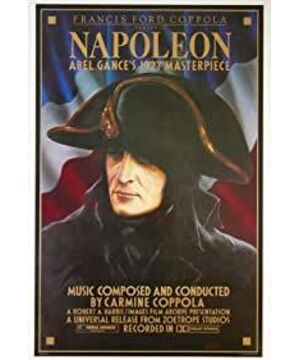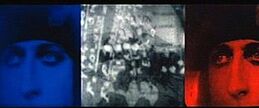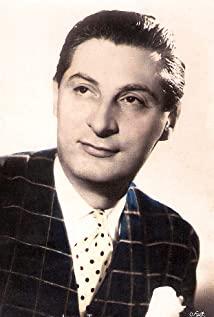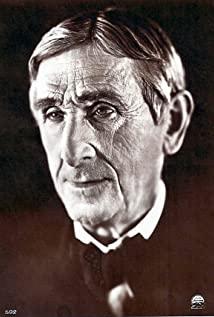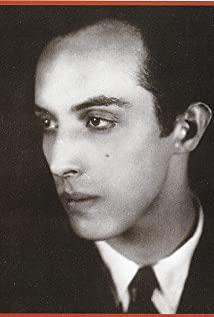I gave myself a pen name in the history textbook of the second year of high school, Corsica. Sixteen years have passed, and no soldier has been in this territory.
For the two hundredth anniversary of Napoleon's death, France has different opinions on whether to commemorate this controversial figure. Among the supporters is Pierre Nora, the historian who put forward the "field of memory". The Seven Star Library, established in 1933, recently reprinted the "Memoirs of St. Helena" published in 1935. This book was once crumpled in Lien's hands and bedside. He envied Las Cases, the count who stayed with the emperor.
I remember the CD-ROMs purchased by the middle school in Chongqing Book City and translated into English French TV series. The consul had itchy abdomen and became angry, but he was no match for the snow in Russia and the billowing smoke of Waterloo. The ending scene seems to be like this:
Napoleon was standing on the side of the Saale battleship, and the ship was about to leave the French island of Aix for St. Helena. He dispatched Las Cases to negotiate with the British navy (maybe because Las Cases' English was still good), and he got the order. The earl put on his military uniform and was about to go.
——Sir, why don’t you wear a medal of merit?
——But your Highness, I don't have one.
——You have at least one Medal of Honor, right?
——No, Your Highness.
--How can this be? Go to my servant Marchand and get one of mine.
In fact, the daily conversations recorded in this memoir began on the second day of Waterloo's defeat. Las Cases is Napoleon’s loyal servant, one of the lost centuries described by Musser. He didn’t plan to use his pen to accomplish the great cause that his master could not accomplish with his sword. Even in the face of a defeated hero, he didn’t plan to play a master slave. dialectics.
But the king has two bodies, his body is dead, and the other is still there, and the incomparable privilege of the poet is that he can be himself and others in his own way. It's like wandering souls looking for a body. As long as he wants to, he will enter the body of each character. I can't confirm whether a poet has entered Napoleon's body, but there are indeed many actors who desire to become Napoleon and play An other is also writing a poem.
Napoleon is the most played historical figure in film history, Marlon Brando, Dennis Hopper, Ian Holm, etc., but none of them have Albert Dieudonné's passion for this role.
Dieudonné was born on the Kléber Street in Paris in 1889. Kléber followed Napoleon in an expedition to Egypt. When Napoleon and the scientific expedition returned to Paris from Egypt, Kléber was immediately named commander of the French army, but unfortunately he was killed by a student in Cairo the following year. Born on the street named after it, if I were Dieudonné, would I have a premonition?
Since childhood, Dieudonné has been fascinated by various narratives about Napoleon. The myth of an empire is no less than the dispute of the gods in Greek mythology. The past glory constructed by words seems to be more real than Paris at the end of the century. When Dieudonné was six years old, the Lumière brothers invented movies in Lijiao. Has he ever thought that his image would be collaged on three screens?
His grandfather Alfred is a theater actor, according to today's statement, he was born in a family of acting. Dieudonné appeared on stage in the theater at the age of nineteen and played Napoleon. In the same year, he appeared as a supporting role in the silent film "The Murder of the Duke of Guise". This silent film composed by Saint-Saëns is now in the Blois Castle where the crime took place. It plays in a loop, and when I watched it in the castle, I didn't pay attention to the list of actors at the end of the film.
In the early 1920s, Albert Gance had already begun preparations for the epic film "Napoleon". The director had already become famous in France for his innovative film techniques. For such a high-cost production, the casting work is particularly critical. Gance thought of several suitable candidates, including the poet Léon-Paul Fargue, the famous German actor Werner Krauss, and the future director Sacha Guitry.
Although Dieudonné has performed in his previous movies, Gance did not think of Dieudonné at first, but the latter’s devotion to this period of history, his obsession with Bonaparte and his enthusiasm eventually influenced Gance. The director still hesitated. Such a big production should not only rely on passion, but also consider the professionalism and popularity of the actors. Until one night, Dieudonné walked into Gance’s office like Tacitus’s wife walked into the palace of Roman Emperor Domitian. , Gance was polishing the script of the movie, and suddenly heard a knock on the door such as "Macbeth" or "Symphony of Destiny", Dieudonné came to audition without saying hello, dressed in Napoleon's uniform, a little taller than the emperor.
He came, he rang the doorbell, the guard came, and the guard opened the door.
"What's this"? The guard asked subconsciously. "It's Bonaparte," Dieudonné replied.
"Bo...Bo...Bonaparte..." The frightened guard watched the ghost talk and began to stammer.
"Open the door, idiot"! Dieudonné snapped.
The guard was shocked, and his body shuddered. Dieudonné walked into the room and stood by the edge of a large table. Gance said to him: "Albert, now, you say something you want to say to the Italian army." (The 4K restored version of this movie has 5 and a half hours and took hundreds of thousands of meters of film and two years of shooting. Time, in fact, is only the first of ten, only before the Wuyue coup, and the director did not have the opportunity to film a sequel to the Battle of Austerlitz until his later years).
"Soldiers, you are unclothed, hungry and cold..." Dieudonné said familiarly. In such an atmosphere, Dieudonné was completely immersed in the role, regardless of the role played. The actor's appearance, eyes, and posture were telling the director Gance that he could not find a reason to refuse the actor to play this role.
Many scenes in the film were shot in Corsica, especially in Ajaccio, the capital where Napoleon was born. This island belonged to Italy earlier and has a local language between French and Italian. The residents of the island warmly welcomed the filming team. Dieudonné wore a wig and costumes and wandered the streets of Ajaccio. The cheers of "Long live Bonaparte" came from the crowd, and the scene was once in a frenzy. Dieudonné was quickly awarded the title of honorary citizen of the city.
The film crew still encountered a lot of difficulties, and a stormy scene almost killed Dieudonné. At this moment, he was standing in a small pool, and nearly a hundred buckets of water hung in the studio poured down, almost drowning him, not to mention a retake if one failed to pass.
The film was finally released in 1927, with mixed reputations, man-made technological innovations, epic rhythms, including a certain "charisma" of the characters, but some people praised them in the sound film that came a few months later. This black-and-white silent film was discarded.
The ghost of Napoleon never left Dieudonné's body. The year after the movie was released, he wrote a political novel "Tsar Napoleon". He was invited to give many lectures on Napoleon, participated in related academic seminars, and even played with the popular actress Arletty in the movie Madame Sans Gêne in 1941, playing Napoleon again. Maybe Dieudonné’s mother’s surname was famous because of him, so she changed her name on her ID card.
Over time, irrespective of the human drama has become a legend. Compared with the rumors that he had gone mad after the movie was released, Dieudonné still maintained a certain level of sobriety. He knew the truth that he should be in the play as well. Only on the set would he be convinced that he was Napoleon. If the actor was at this time Don't believe in character possession, so what kind of play does he play?
"Are you ready? Action" The director gave an order from behind the camera, and the actors were about to charge. After filming a scene, one has to learn humor and self-deprecating. Literature and art often have to be so absorbed in it, beyond the outside, and get the heart from it.
"Should we call you Albert or Your Majesty?" an audience member asked.
"I prefer others to call me Your Majesty. I'm used to it." He smiled after saying that, "I'm not the only one possessed by Napoleon. There are others, but those people are all fakes."
Dieudonné retired to the village of Courçay in Tours after World War II. The Ender River meanders through and the river leads to the lily of the valley in Balzac. He often called the villagers to go hunting with him, put on the military uniform of the Empire period, and shot hares. Some villagers would also ask him the same question:
"Should we call you Albert or Your Majesty?"
"I prefer others to call me Your Majesty, and I am used to it." He was silent after speaking.
In 1976, Emperor Dieudonné was about to die. The villagers followed his last wish and buried this Napoleon uniform as his mourning suit. The corpse was lying on a thick country quilt. The meaning of this existence just reminds people of another person, and finally no longer aggressive, lying flat in the coffin. The villagers brought torches, and the flames shone with black light.
In 2019, people in the village put on the military uniforms of period dramas and walked through the muddy village road. Guns and guns blasted to commemorate this lovely old man who passed away. In his dying years, it is no longer the supreme who crossed the Berezina River, the spirit of the world on horseback, but a child who needs to be taken care of.
In the past few years in France, I have visited many cities and villages in other provinces, and I have walked around the hexagon in a circle. I have also gone deep inland to the area of Tours. But I have never been to Corsica, the beautiful island where I once dreamed of fighting, revenge, passionate Ko Longba, and longing for independence. The closest I was to it was on the coast of Nice in April, six years ago, on the Avenue of England where there has not yet been a terrorist attack. Corsica was on the other side of the Bay of Angels. I wanted to go, but suddenly a Levitan lay in my heart. And the reveries about places and place names should be left in the imagination that may be more acceptable than reality.
I'm back, and I still haven't written decent writing on that land. I no longer worship anyone. For Bonaparte, who accidentally shared the same birthday, my mood became simpler and more complicated than when I was a teenager. Although it was not a battlefield, I still lost. I did not bring back a soldier.
View more about Napoleon reviews


